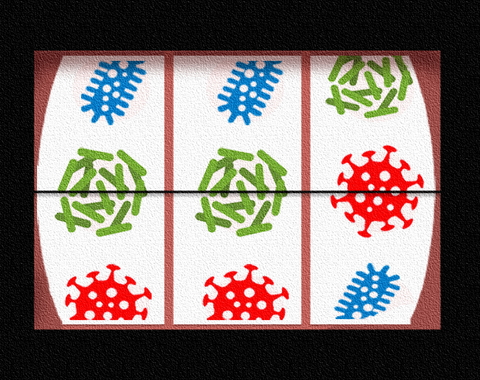Our Research
Recent research advances have revealed that the vast diversity of evolved life is microbial, and that both plants and animals require intimate, life-long, and co-evolved relationships with the microbial world to maintain their health.
These findings provide evidence that the biosphere does not exist as as a collection of individual organisms upon which natural selection occurs, but rather as complex, multi-genome, nested ecosystems. It turns out that microbial communities play a key role in the healthy functioning of our bodies, as well as the planet-scale cycling of elements that shape our dynamic planet.
Carnegie researchers investigate interactions between microbial communities across a range of environments, from the human gut microbiome, which affects our development, fertility, and longevity; to the microbial mats found in hot springs, which could inform climate change adaptation strategies; to microbial ecological processes occurring in the ocean, which shape global cycling of elements such as carbon and nitrogen.
Carnegie researchers investigate interactions between microbial communities across a range of environments, from the human gut microbiome, which affects our development, fertility, and longevity; to the microbial mats found in hot springs, which could inform climate change adaptation strategies; to microbial ecological processes occurring in the ocean, which shape global cycling of elements such as carbon and nitrogen.
Recent Microbial Interactions News
These populations affect our health, fertility, and even our longevity. But how do they get there in the first place?
Pioneering microbiome specialist Margaret McFall-Ngai has been named the inaugural director of Carnegie’s newly launched research division.
Project seeks to define the social order of naturally occurring microbial communities.











